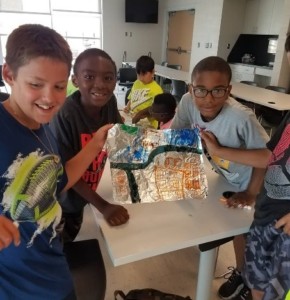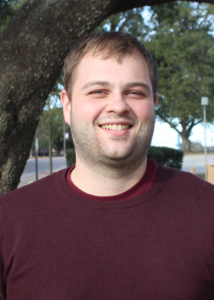January 11 – The challenges of the COVID-19 pandemic has had some bright spots when it comes to providing education to audiences who may not have been reached before or could not attend in-person classes.
In order to reach audiences during the ongoing pandemic, the 4-H Education class series transitioned to a fully online platform this fall. The classes are offered online for six weeks focusing on:
- Journey to 2050 global water supply
- Global water distribution
- Water and landforms
- Natural water cycle
- 4-H20 carbon dioxide effects
- Calculating water usage
The Enviroscape water table is also used to show water pollution effects on our freshwater sources.

4-Hers participating in the Landforms and Water ways lesson ; Christolm Trail Community Center Fort Worth, TX (August 2019)
Each class includes an experiential activity participants are able to perform at home with supplies provided by Extension. Some of the hands-on learning projects include measuring global water sources in a scaled-down version using cups, creating landforms and water runoff with aluminum foil, generating our own carbon dioxide in water, calculating each individual family’s home water usage, and building lava lamps to examine water density. Participants also have the opportunity to present their work to one another.
Participants receive a virtual certificate of completion and have the option to pick up a hard copy from the County Extension Office. Families responded to the program with favorable feedback after their first attempt with water education.
“I really enjoyed the projects online and I had a lot of fun, thank you,” the participant said.
Overall, the program has had a great impact. In 2020, 106 participants took part in the water education series. Of the 82 participants surveyed, the results indicate:
- 94 percent can reduce water usage in-home and community by tracking multiple sources
- 94 percent would like a career in water conservation or another STEM field
- 98 percent can locate areas of point source pollution.
The program will continue to be offered in Tarrant County throughout the year and possibly to other counties interested in the 4-H water and conservation project.
For more information on this article contact:
 Jordan Peldyak
Jordan Peldyak
4-H Youth Development Extension Agent
Tarrant County
jordan.peldyak@ag.tamu.edu
(817) 884-1940

